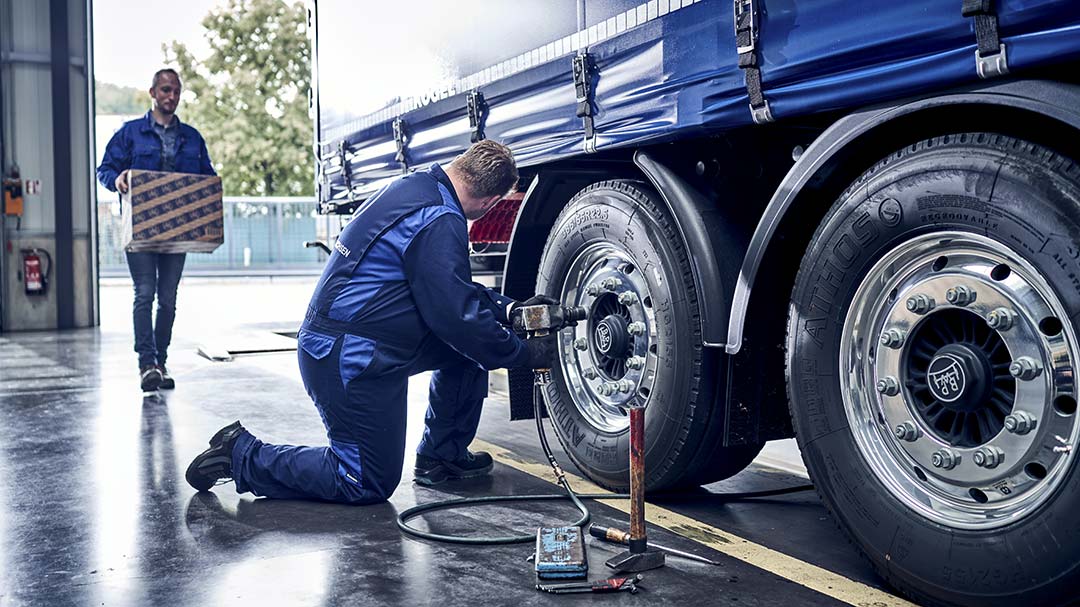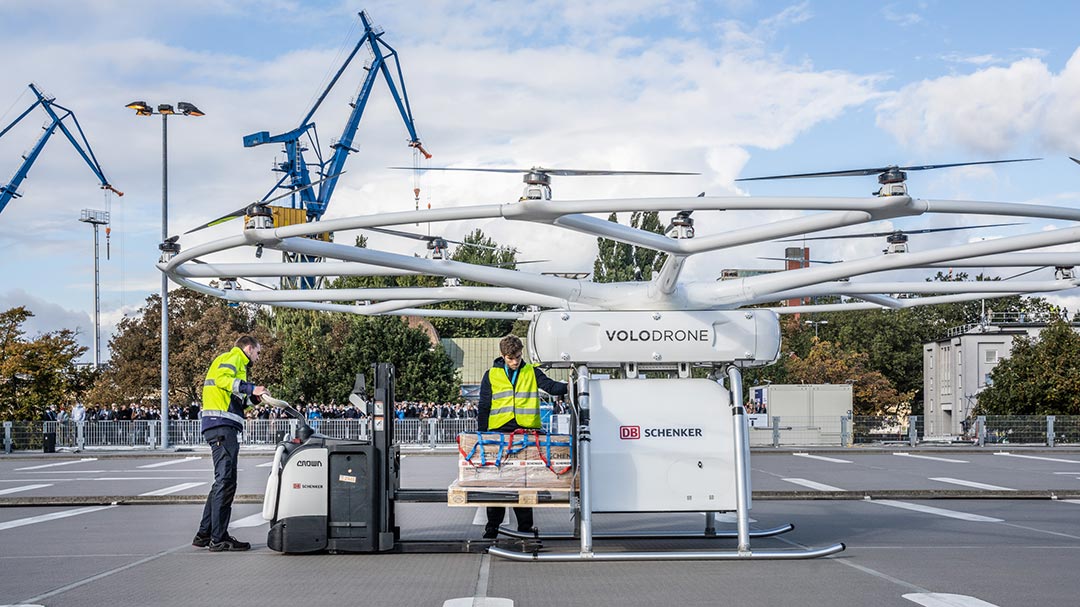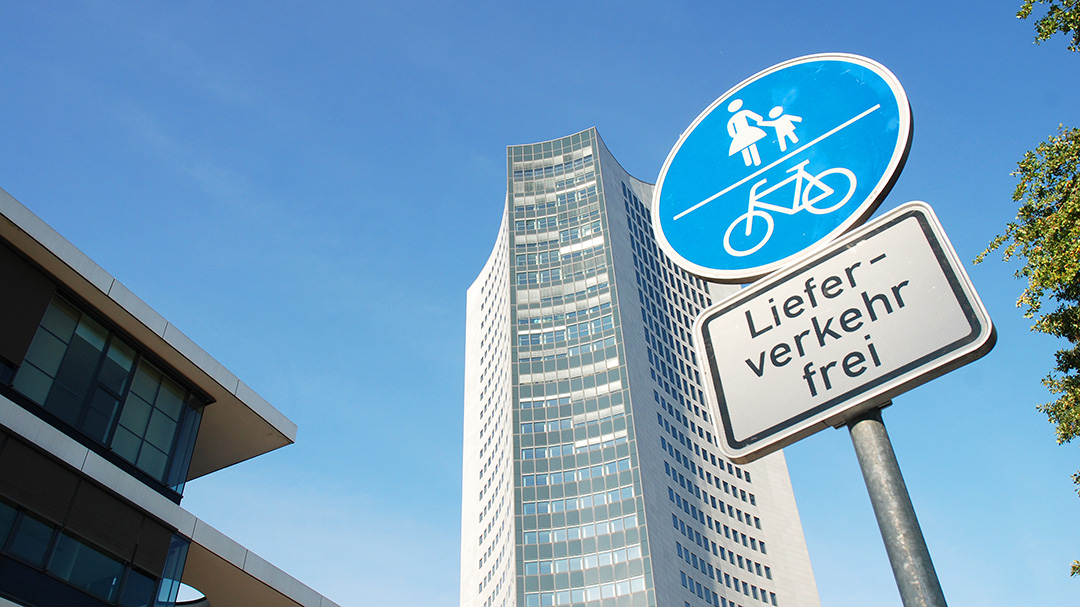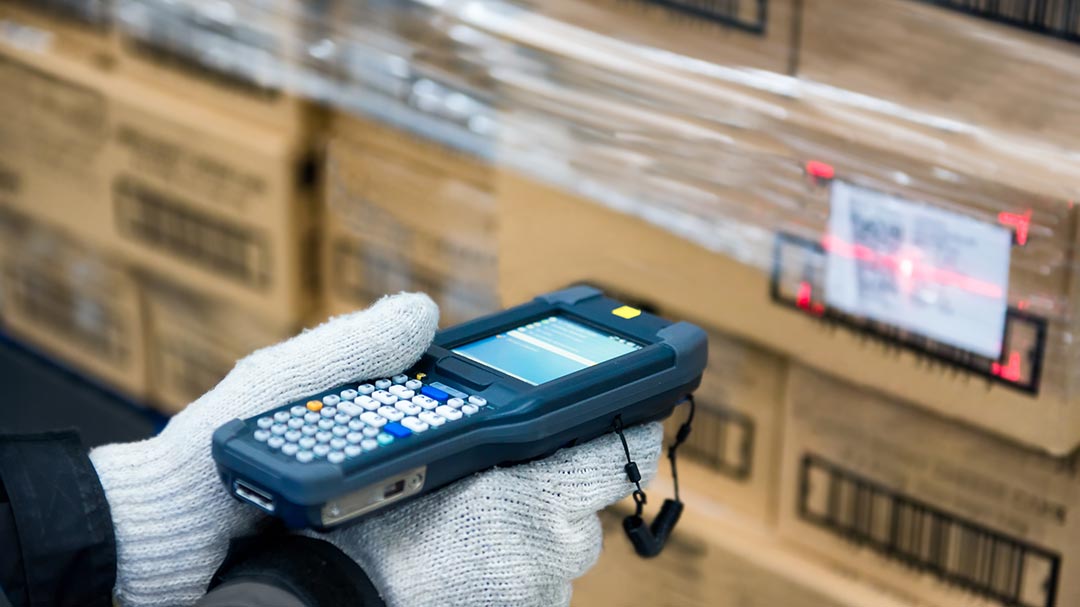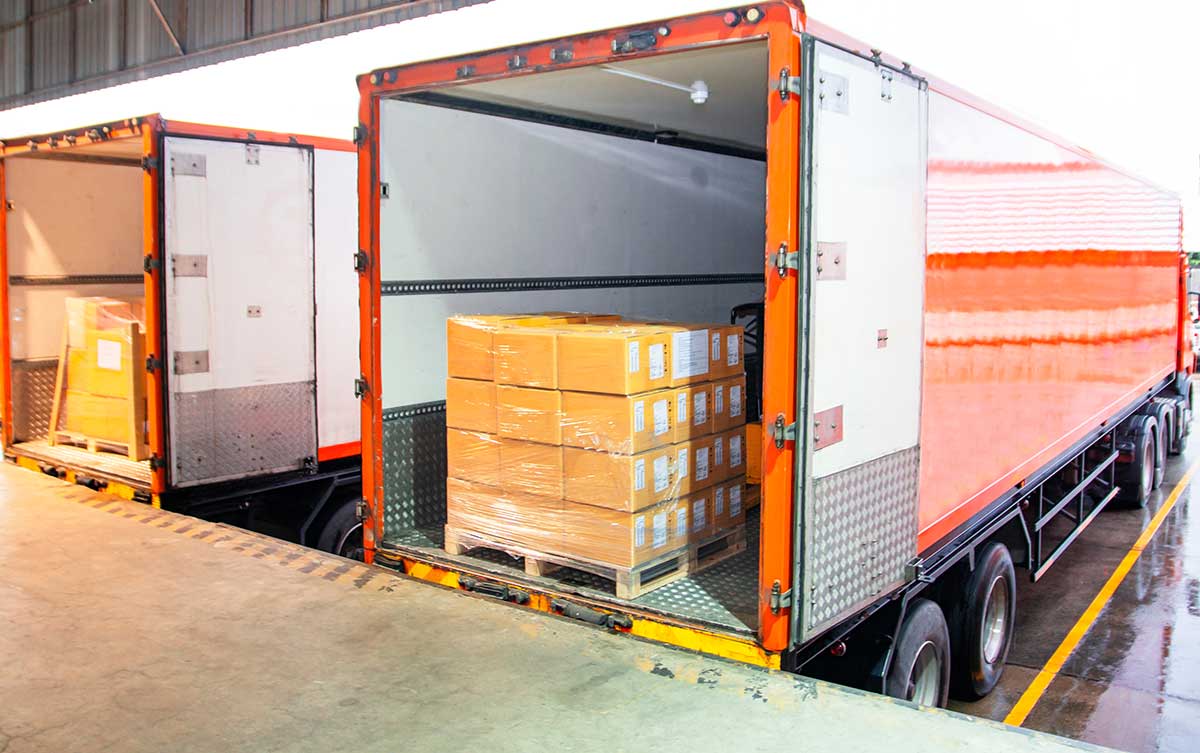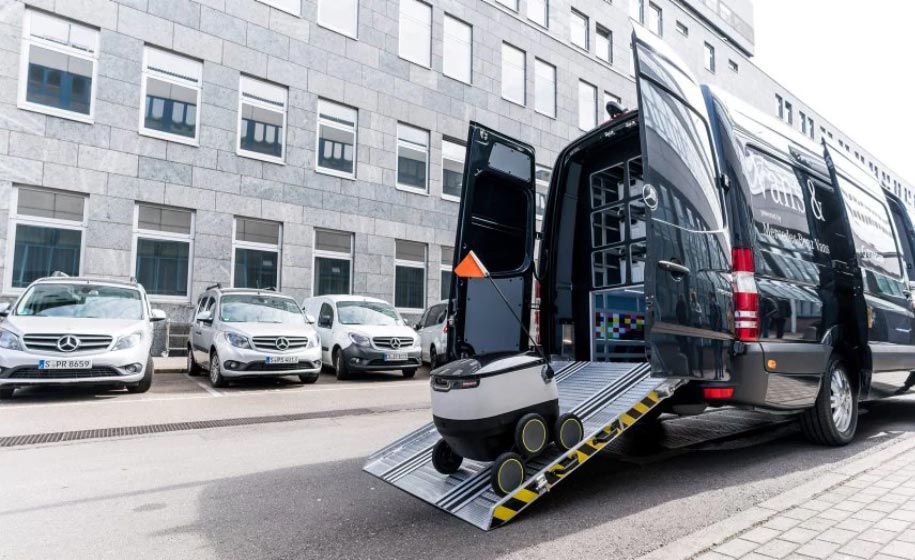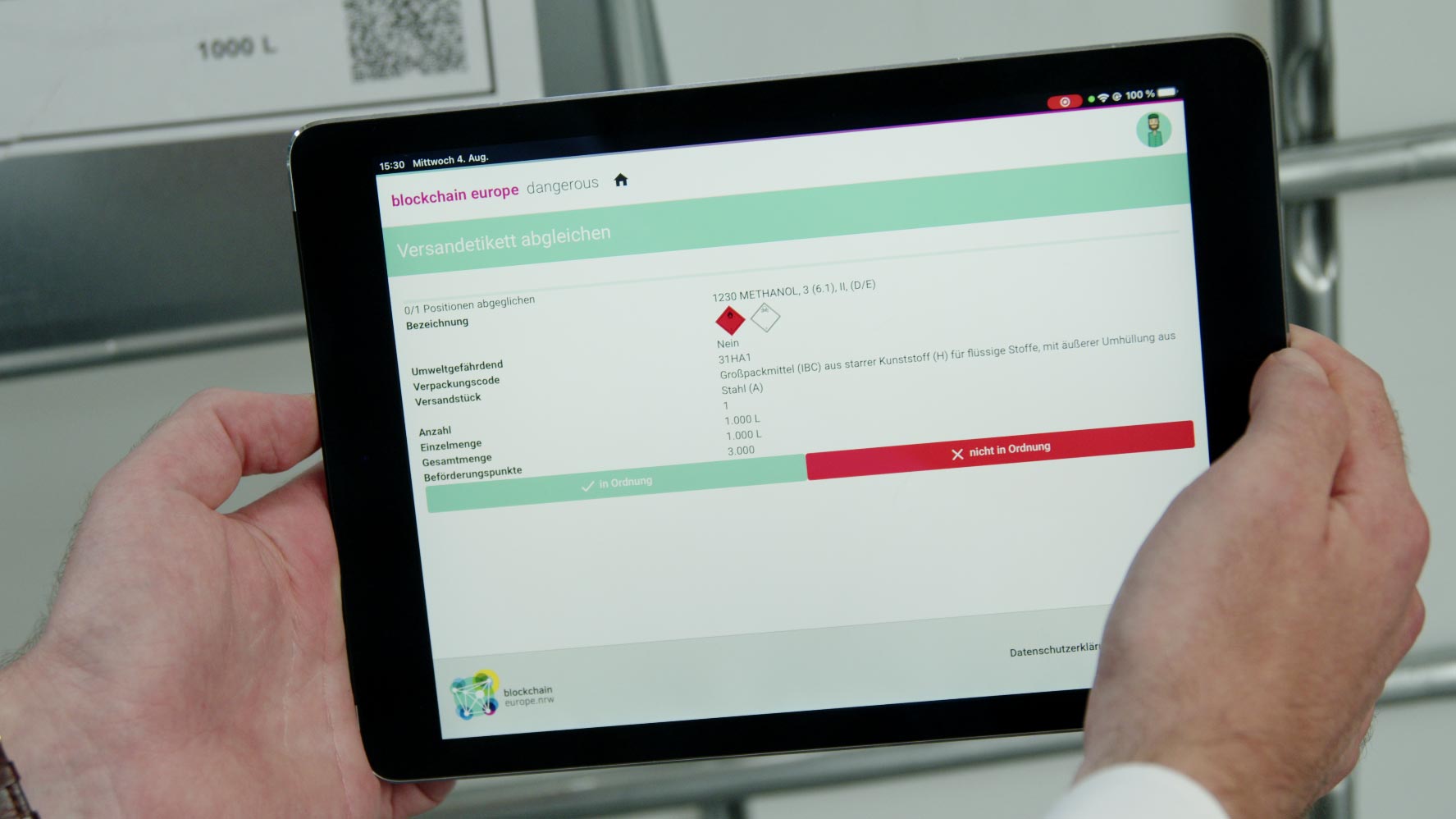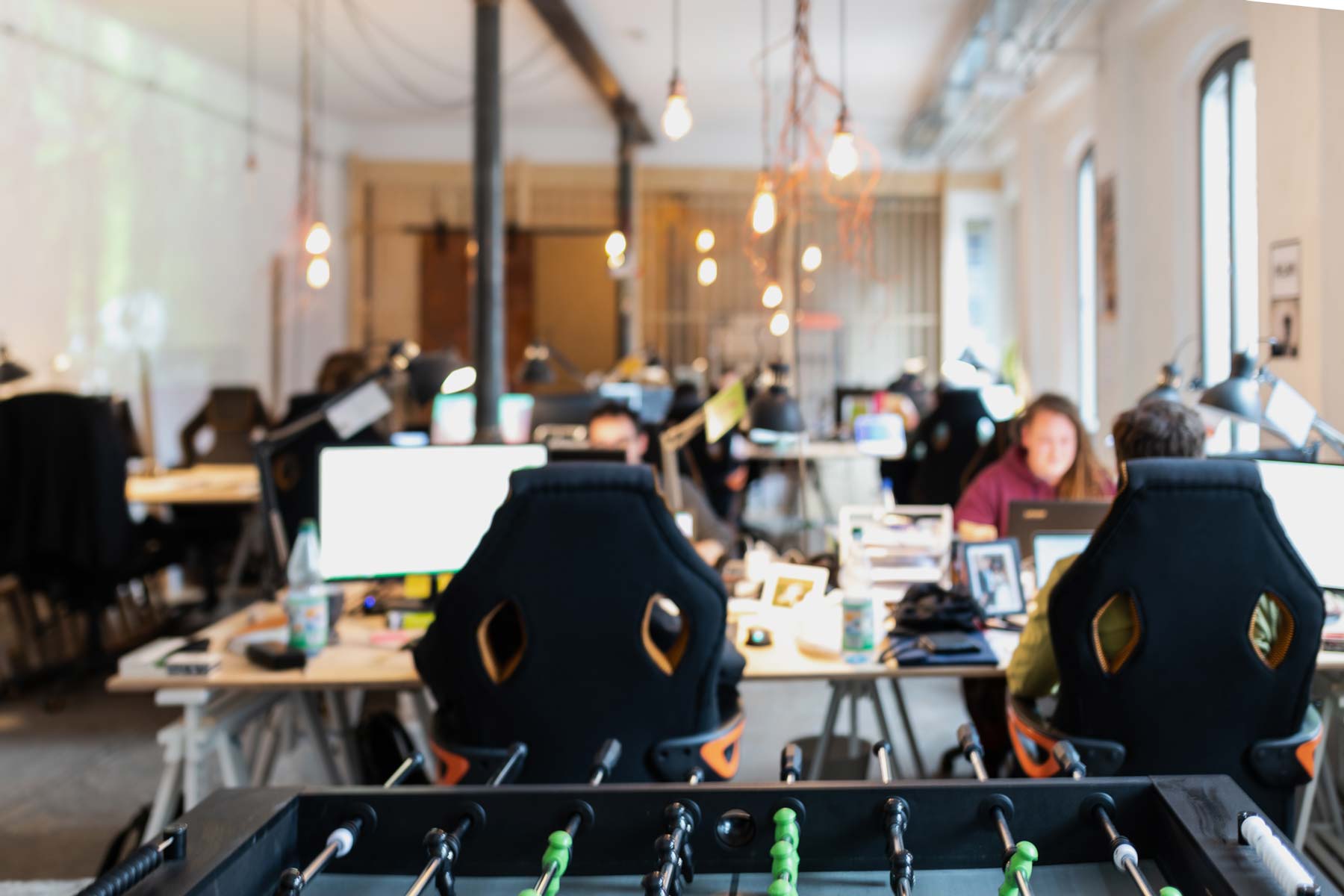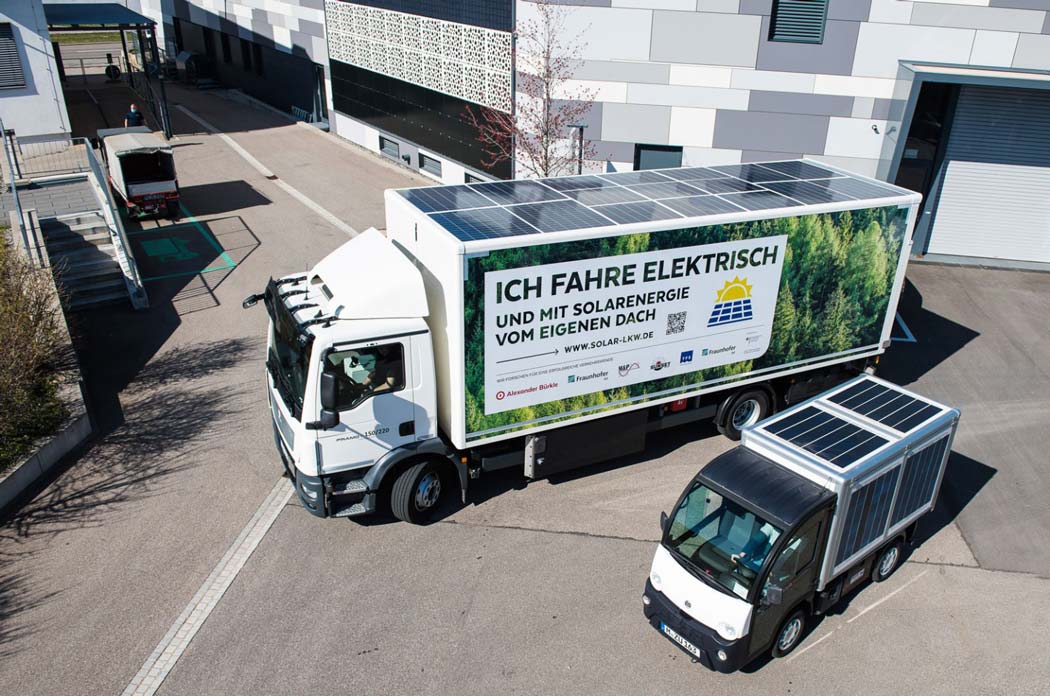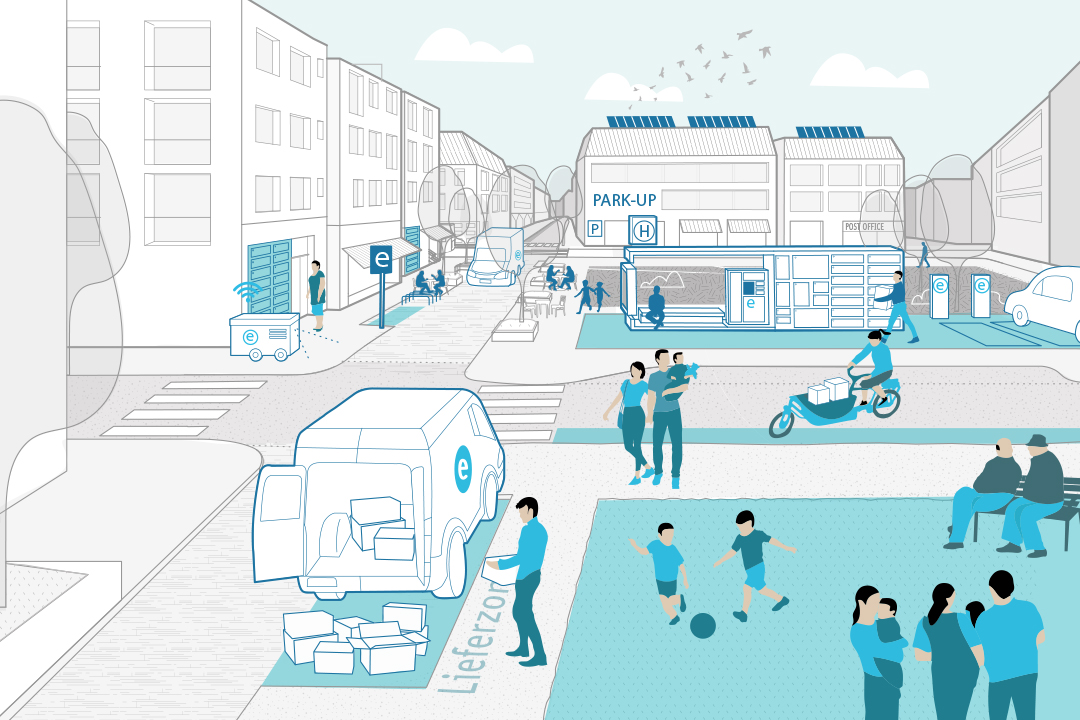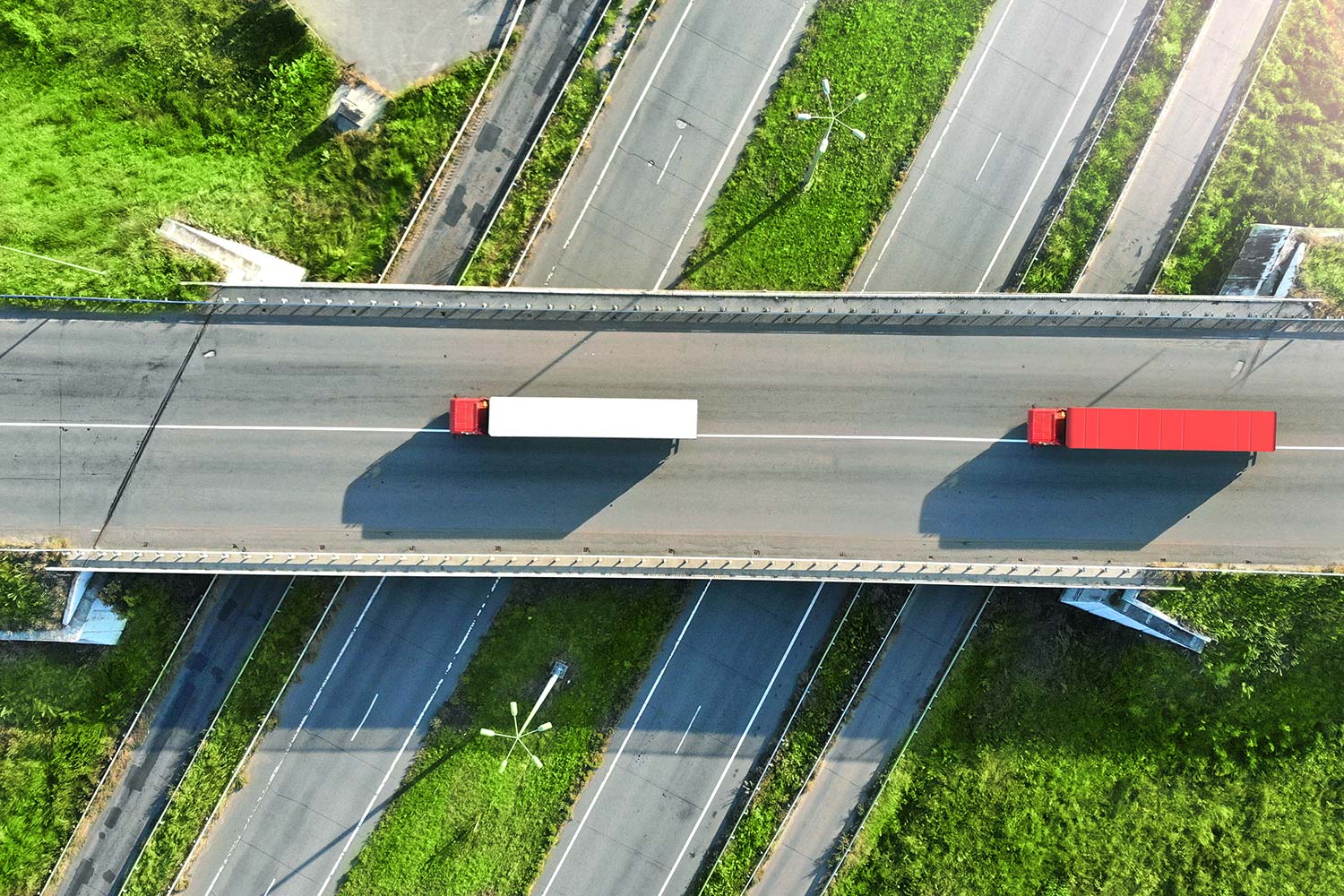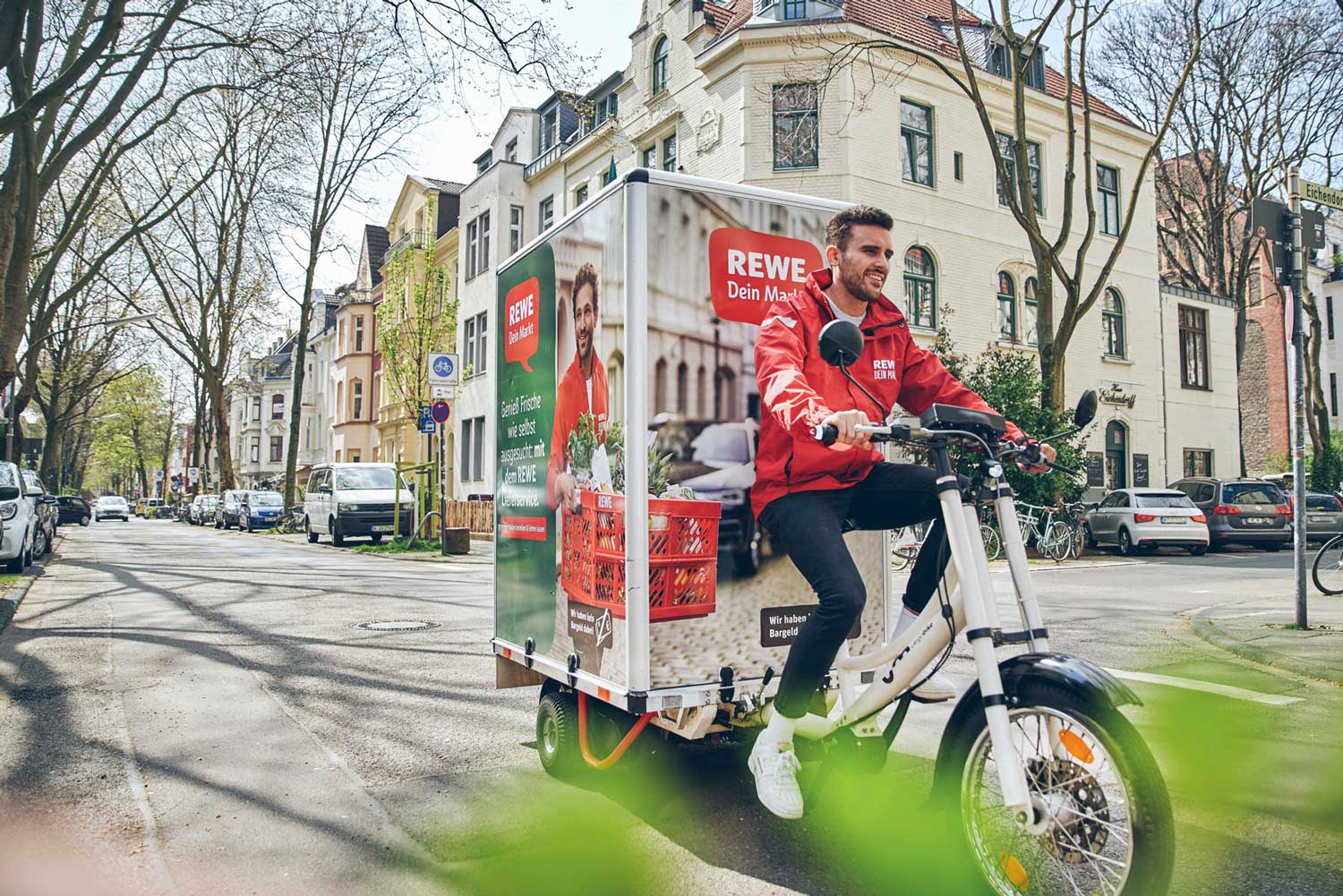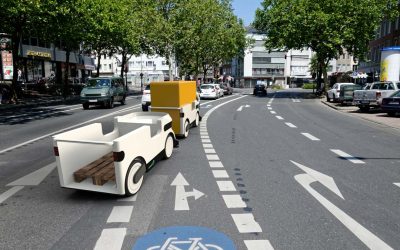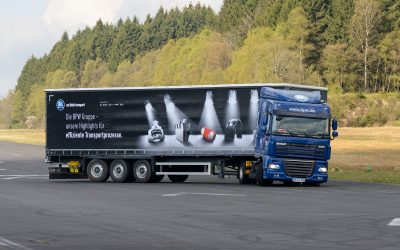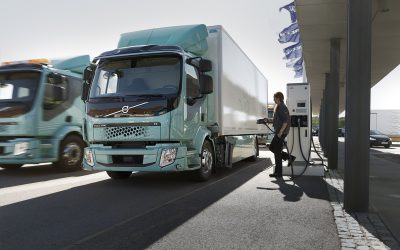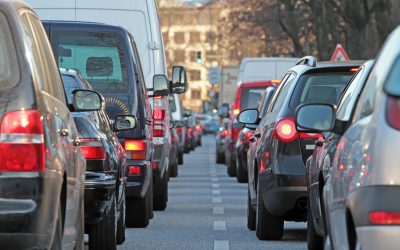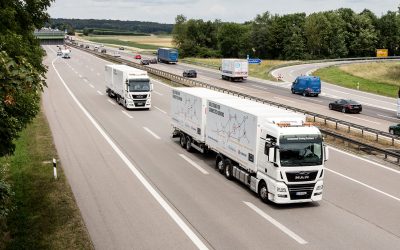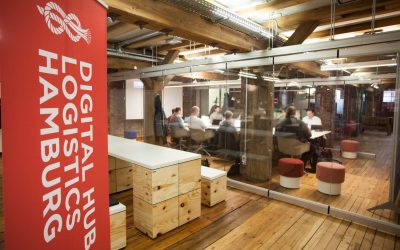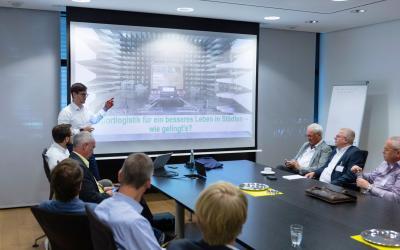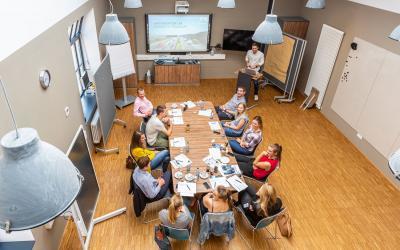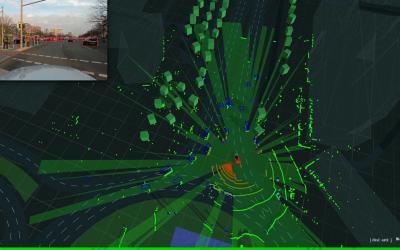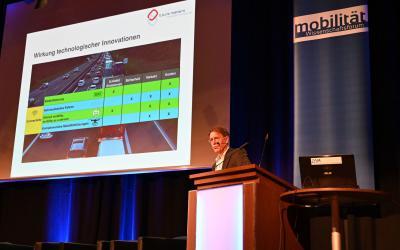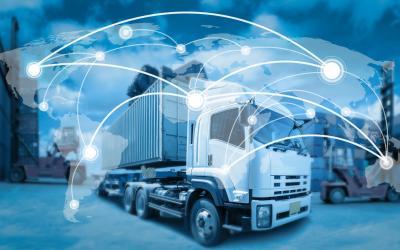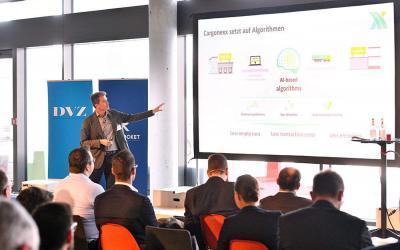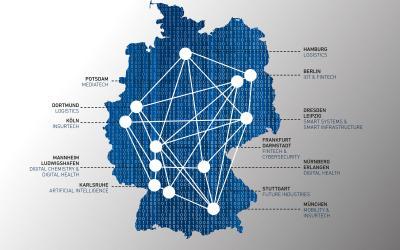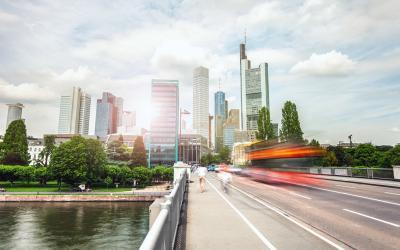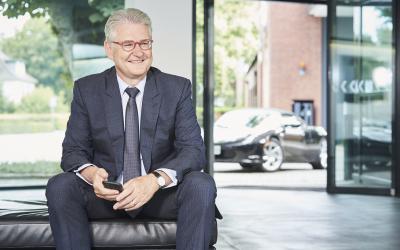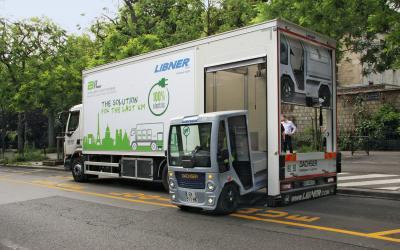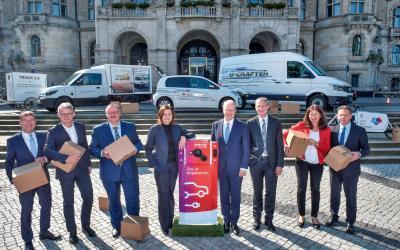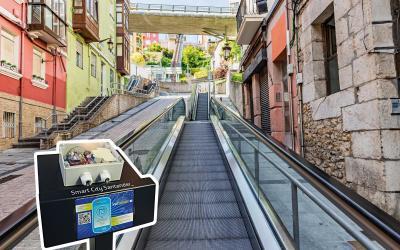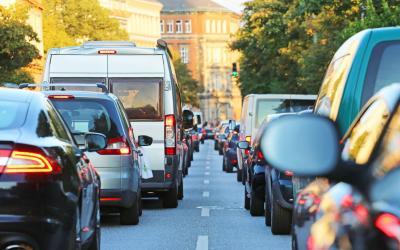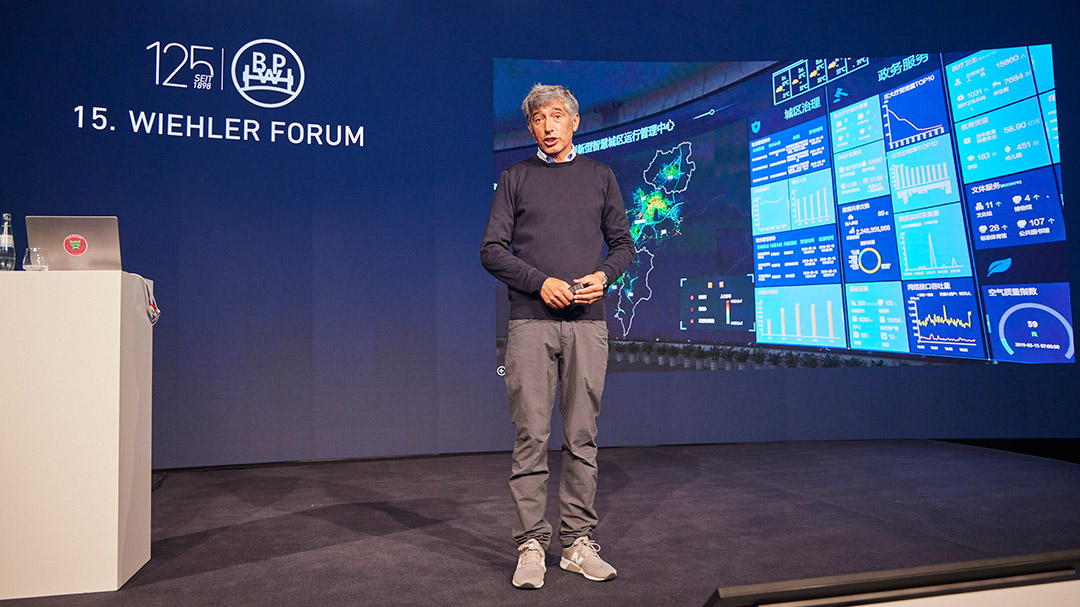
The change remains
In view of the current challenges, how can transport and logistics remain competitive in the future? Science journalist Ranga Yogeshwar provided some exciting impulses at the Wiehl Forum of BPW Bergische Achsen and explained how companies should react to the most important influencing factors.
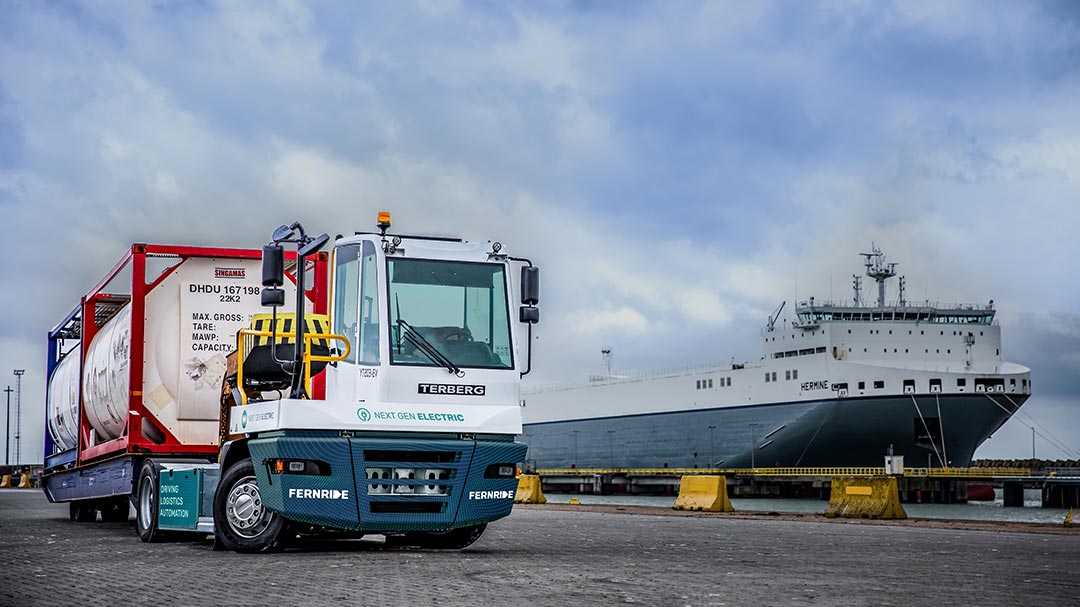
90 per cent automation, 10 per cent human
Autonomous driving is considered a recipe for success against driver shortages, for climate protection and efficiency. At the Wiehl Forum of BPW Bergische Achsen KG, Hendrik Kramer from Fernride presented how his company plans to bring autonomous electric trucks onto the road in the near future.
The precision of Predictive Maintenance
How precisely can Predictive Maintenance predict when a vehicle needs to go to the garage? Benjamin Adrian, Deputy Head of the System Analysis, Prognosis and Control department at the Fraunhofer-Institut für Techno- und Wirtschaftsmathematik ITWM in Kaiserslautern, is researching this topic. In this interview, he explains how precisely the optimal time for predictive maintenance can and should be calculated.
Recycled plastic in the commercial vehicle industry: lighter, sustainable and equally stable
People are increasingly turning to recycled materials in the commercial vehicle industry as a way to save resources: BPW affiliate HBN-Teknik from Denmark is a pioneer in this practice. In this interview, CEO Oscar William Gunner reports on what his teams are working on.
Transportation in new realms
German company Volocopter wants to use electrically powered drones to transport people and goods in the air. This could become reality in around two years, since the technology is already mature and many investors support the idea. Now all that’s missing is certification so the aircraft can be allowed in cities.
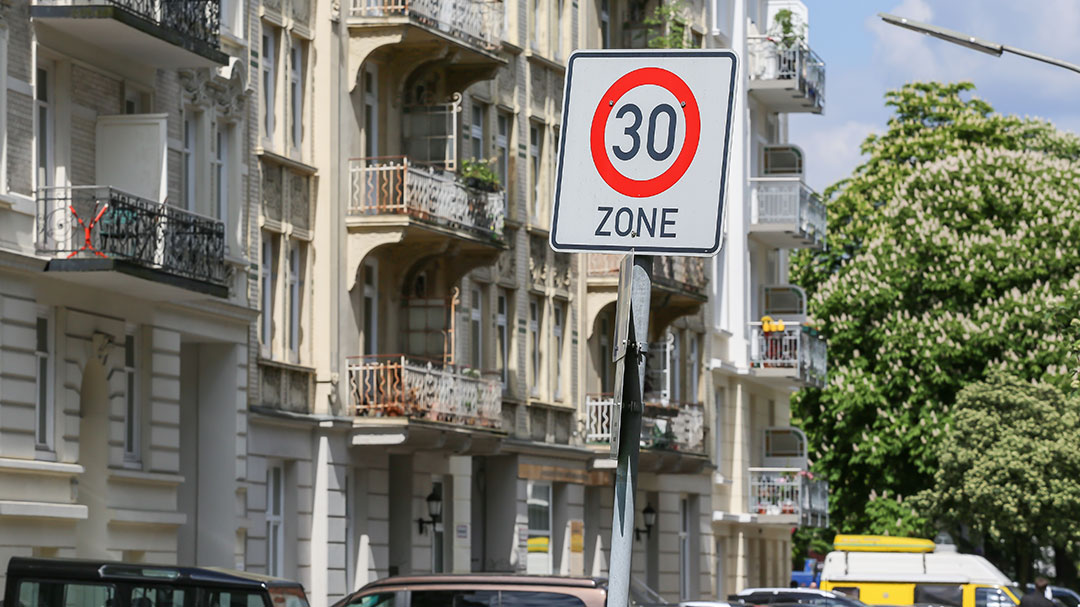
How can we prevent gridlock?
Every day we are greeted with cars lined up bumper to bumper: permanent traffic jams have become the routine in many metropolitan regions. The powers that be in towns and cities are looking for ways out of the gridlock which are in line with the road traffic law reform according to new concepts for stable, functioning urban logistics.
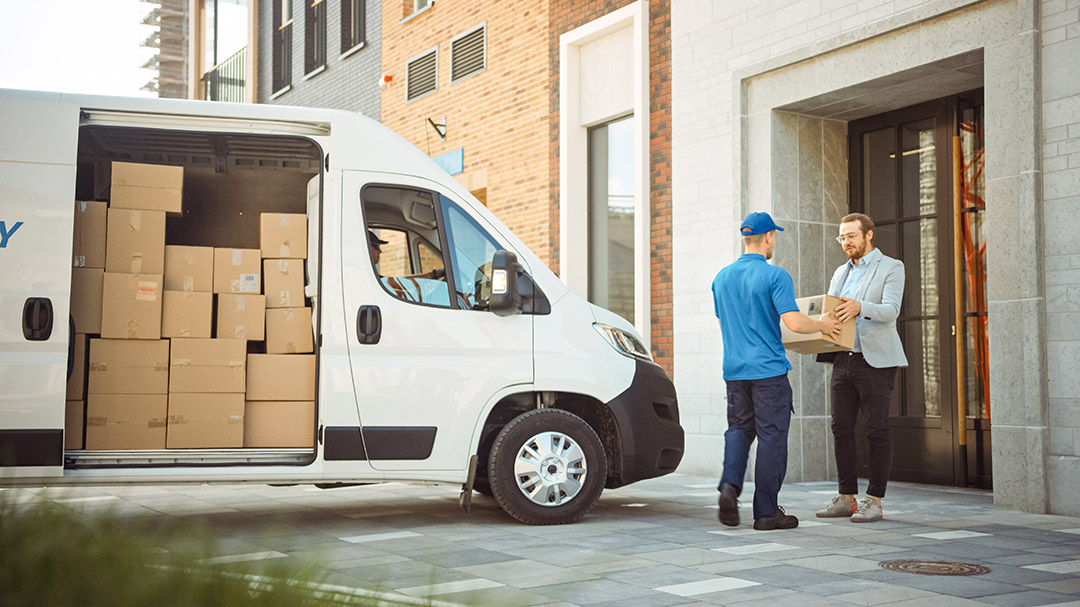
Collaboration the key to clever urban logistics
The best logistics solutions are those that aren’t needed in the first place. That is the opinion of Professor Ani Melkonyan-Gottschalk, Managing Director of the Centre for Logistics and Transport (ZLV) at the University of Duisburg-Essen. She argues that individual logistics solutions alone are not enough to meet the challenges of urban infrastructure and that instead dual-purpose concepts hold the key to a sustainable logistics future.
“Mobility is a design task”
What mobility matrix will shape our towns and cities in the future and how can a people-centric mobility revolution be successful? Claudia Fischer-Appelt, designer and communications expert, has been working on transforming mobility as we know it for years. In this interview, she outlines possible opportunities and potentially innovative ideas for a more sustainable movement of goods.
More vegetarians – more refrigerated transport?
People are eating more consciously – this has an impact on food logistics. Julia Kleineidam, research assistant in the Logistics Department headed by Professor Frank Straube at the Technical University of Berlin, reports in an interview on the challenges and perspectives she sees for the industry.
Start-ups from the future told
Reading time: approx. 4 minutesText: Juliane GringerPhotos: Prof. Dr. Stefan Iskan / supplychainmachine.com, Shutterstock"The transport and logistics industry is becoming a process supplier for the economy and society," says Stefan Iskan, professor of logistics and...
“I would close down the big cities completely”
Anna-Theresa Korbutt, Managing Director of the Hamburg Transport Association (hvv), calls for a concession award for city logistics. What works for public transport is a rescue option for congested metropolises.
When the robot rings the doorbell
With the BeIntelli project, the Technische Universität Berlin, together with many partners, is researching how intelligently networked mobility can function in the city.
Secure and smart processes thanks to blockchain
The digitisation of logistics is advancing rapidly. A Fraunhofer research team in Dortmund is developing blockchain technologies that can be used to map a wide variety of processes and transactions in a legally secure and tamper-proof manner.
How many people does sales need?
Services where little advice and support is needed in sales can easily be handled online. Lasse Landt, Managing Director of Pamyra GmbH, believes that in the future most transports will also be booked directly online by customers with a few clicks.
Fresh energy from the roof
The large roof surfaces of box bodies, with their attractive sunny position, are ideal for generating renewable energy. A Fraunhofer research team is therefore testing new concepts for vehicle-integrated photovoltaics.
Trusted Carrier – the digital door opener
Digital solutions can speed up clearance at the barrier enormously. But how can a shipper be sure that a transport company meets the requirements for entry? The key is a careful check of all documents and certificates. We took a closer look at Trusted Carrier’s solution for the chemical industry.
“Rethinking City Logistics”
Until now, freight transport has often been a poor relation in urban planning. But how can city logistics function when the demand for transport is increasing and at the same time there is less and less space available? Stuttgart now wants to learn from past mistakes. Götz Bopp from the Stuttgart Region Chamber of Industry and Commerce explains what a new development quarter of the future could look like.
Smart and networked up to the last mile
The mobility of tomorrow is smart, networked, electrified and automated – and the implementation is already much further along than some would expect: This is how the findings of the 13th Mobility Science Forum at the University of Duisburg-Essen can be summarized.
Frozen pizza delivered by cargo bike
Cargo bikes for the last mile are now considered the ultimate in sustainable city logistics. In Cologne, the Rewe delivery service, together with Ecocarrier, relies on the use of vans and cargo bikes. What actually constitutes bicycle logistics? Which bikes are the first choice? And is the bike ultimately faster than a vehicle with a combustion engine?
Electric ducks instead of trucks
With an electrically driven, automated “Ducktrain”, the Aachen-based company DroidDrive wants to make logistics in inner cities more efficient, cleaner and quieter: With its pallet-sized carts, the “Ducktrain” offers space for parcel shipments and other goods to be transported into the city.
“AI improves all areas of logistics”
Die TH Köln macht den Studierenden herausragende Lehrangebote zum Thema „künstliche Intelligenz in der Logistik“. Dafür erhielt das Logistikteam der TH jüngst den Hochschulpreis Güterverkehr und Logistik des Bundesverkehrsministeriums, der 2020 unter dem gleichnamigen Motto stand. Prof. Stephan Freichel erklärt, wo künstliche Intelligenz (KI) schon heute in der Praxis angekommen ist und wie sich Führungskräfte für die Zukunft aufstellen sollten.
“IdenT” research project: focus on autonomous driving
Trucks with a total weight of 40 tons are part of the normal road scene. But without a driver? Especially in the commercial vehicle sector, autonomous driving offers enormous potential, but also special risks. Although trailers have a strong influence on the driving dynamics and reliability of semitrailers, they have so far received little attention when it comes to autonomous driving. The “IdenT” research project is changing this.
Where are the trucks with alternative drive systems?
To transport goods without emissions, vehicles with alternative drive systems are needed. Hauliers have long complained that such vehicles are not available. Is this true? motionist.com has brought three sides together in a video conference: Peter Prijak, Director New Vehicle Sales at Volvo Trucks, Kirsten Lühmann, transport policy spokeswoman of the SPD parliamentary group and member of the committee for transport and digital infrastructure, and Wolfgang Thoma, managing director of Spedition Ansorge. A debate between manufacturer, logistics expert and politician.
Collective responsibility for climate protection
Freight transport accounts for a large proportion of global CO2 emissions. The greenhouse gas is considered to be the biggest contributor to climate change. So what responsibility do companies in the transport and logistics sector have for climate protection, and how can they deal with it?
Straight-talking logistics experts: This is what we want from politics!
Logistics is the backbone of the German economy but many restrictions and regulations make work difficult for the industry’s entrepreneurs. Three logistics experts clearly state on motionist.com what they expect from politics.
‘Private vehicles have no place in city centres’
Cities are full and our transport infrastructure is reaching its maximum capacity. However, it is not the vehicles that supply supermarkets, retail outlets and construction sites that need the most space, but rather private vehicles. How can this be reduced? This is what two experts from Hamburg discuss on motionist.com: Professor Gesa Ziemer, Head of the City Science Lab at Hafencity University, researches mobility in the cities of tomorrow. Hans Stapelfeldt, Network Manager at Logistik-Initiative Hamburg, is responsible for implementing the Intelligent Transport Systems (ITS) strategy and the ITS World Congress 2021.
Is platooning the future of long-distance transport?
The technology was reliable, less diesel was used and the drivers were also satisfied: in a practical test on the A 9 motorway between Nuremberg and Munich, truck platooning convinced project partners DB Schenker and MAN Truck & Bus. Even if there is still a long way to go until it comes into operation, the initiators are certain that the technology offers great potential.
A hub for the future of logistics
The Digital Hub Logistics in Hamburg has been connecting established companies with start-ups and players from the fields of research and education for two years now. The former warehouse in the city’s Speicherstadt warehouse district is a place where new ideas and business models for the future of logistics are taking shape.
Why do we fear robots?
Martina Mara is Professor of Robot Psychology at the Linz Institute of Technology (LIT) of the Johannes Kepler University Linz. She is carrying out research on how robots and humans can work well together, and what is key to ensuring we do not fear machines. How can driverless vehicles gain our trust, for example?
Picturing digital logistics
Have you ever thought about logistics in images? Give it a go! It can offer some fascinating new insights. We present five inspiring perspectives on the changes in the industry, which the speakers at the Wiehler Forum 2019 at BPW Bergische Achsen shared with the top decision-makers from transport and logistics.
City logistics: what will solve the problem?
Given that online trade is booming in Germany, logisticians should actually be happy. After all, an increasing number of orders also means a greater number of assignments for them. But what if the number of parcels continues to rise to unimagined heights? Are logistics in the city then the problem or the solution? At the Moving City event, the industry considered new logistics approaches and technologies to cover the last mile.
‘We need an Elon Musk of long-haul logistics’
Logistics needs to be everything at once: reliable, eco-friendly, flexible, affordable – and ideally invisible, too. Individualisation and digitisation are putting even more pressure on the industry. How can it respond? According to Prof. Dr Gernot Liedtke from the Institute of Transport Research at the German Aerospace Center, the industry needs to show more entrepreneurial spirit and make its own visions a reality.
Logistics juniors: ‘Pitching in rather than waiting around’
ELVIS juniors have very little to do with rock ’n’ roll – but all the more with digitisation. In fact, junior logisticians at the European Cargo Federation of International Freight Forwarders would rather kick-start the future of digital processes today. But which tools are required to get a company on the right track? The juniors collected tips at a workshop held within BPW’s ideas workshop.
Autonomous driving in cities – opportunity or risk?
The transport infrastructures of large cities are reaching the limits of what they can handle. The roads are becoming congested with an increasing number of delivery services and individual mobility solutions. Is autonomous driving the answer? Would it make urban mobility safer, more efficient and cleaner – or would it just mean even more vehicles on city roads, thus causing the system to break down completely?
Wanted: smart mobility concepts for city logistics
How can metropolises rescue themselves from gridlock? How can the logistics for the last mile or the last hundred metres be made more efficient and more environmentally friendly? The University of Duisburg-Essen’s eleventh Scientific Forum for Mobility came up with some exciting responses to these questions – from high-speed transport pods and underground transportation to retrofitting with electric drives.
Who will win the clash of economic systems?
Digital transformation is much more than just technology hype. It is putting nearly everything to the test – business models that have been successful for decades as well how we interact with one another in society. To what extent can a social market economy thrive in the face of digitised logistics? What opportunities does Europe have in the clash of economic systems between the USA and China? And how can logistics companies handle these upheavals?
Will artificial intelligence replace the dispatcher?
Self-learning algorithms can radically change transport and logistics by enabling real-time tracking. This is no longer just a theory, but actual reality for companies in the industry: the online haulier Cargonexx has built its business model on artificial intelligence, and forwarder Hubertus Kobernuß is linking up with the start-up Evertracker. Why is it important to take action now?
Why digital transformation starts with your own employees
Digitisation, Industry 4.0 and the Internet of Things demand a great deal from those involved in the logistics industry. These challenges are inescapable: change has become a must. How can companies tackle digital transformation and secure their futures? Find out here why you will fall behind without outside input and how decision makers can now take the wheel.
„Digital Hubs“ for Germany
Digital Hubs Germany is an initiative launched by the Federal Ministry for Economic Affairs and Energy and the industry association Bitkom. Its ambition is to trigger international awareness and appeal. It is a framework within which companies can interact and work together with business start-ups.
Smart solutions for city logistics
Life in the city is becoming more and more convenient, thanks in part to new logistics services.
To ensure that these are organised in the most resource-friendly way possible, logistics providers, customers and cities need to collaborate on innovative solutions for the last mile.
Digital transformation: Where does your company stand?
As part of the German Federal Ministry for Economic Affairs’ Mittelstand-Digital initiative, the BSP Business School Berlin has developed a guide to help companies determine their current level of digital maturity. Dr Thomas Thiessen, dean of BSP and head of the Mittelstand 4.0 Centre of Excellence in Communications, explains the keys to a successful digital transformation.
Digital Pioneer
BPW has been named a ‘digital champion’: in this interview, managing partner Michael Pfeiffer explains where the company stands when it comes to digitalisation – and which strengths it can display along the way.
The power of fascination
People are curious by nature: we want to investigate technologies, optimise processes and advance ourselves economically. Fascination is a key stimulus for change and thus the driving force for progress.
Leading the world
Inventors and thinkers have made Germany one of the world’s most innovative nations. Research is now receiving intensive support so that this strength is maintained and developed.
Artificial intelligence in city logistics
The founders of Urbismart are all over 50, so they refer to their business as an “old men’s start-up”. It is specifically their experience in transport and logistics, digitisation and warehouse automation that led them to the idea of using artificial intelligence to optimise city logistics.
Model region for city logistics
Hanover aims to investigate and test future-proof logistics concepts for urban areas in a project entitled “Urban logistics of the future”. Residents are closely involved in this undertaking.
The digital city
Modern technologies should help to simplify urban living. Technical progress can optimise processes, cut costs and facilitate mobility. Pioneering cities such as Santander in Spain are already implementing a number of ideas.
Designing urbanization: Cities need mobility concepts
Congestion, noise, exhaust gases – new mobility concepts are essential if cities are to become pleasant places to live again. The content of such concepts is among the topics being investigated by the German Institute for Urbanism.
Recognising logistics trends and harnessing potential
Observers are forecasting a variety of trends for the logistics industry. Where should companies be focusing their attention, and which paths should they be taking? Experts recommend sober analysis and are helping to extract useful information from the wealth of available data.

